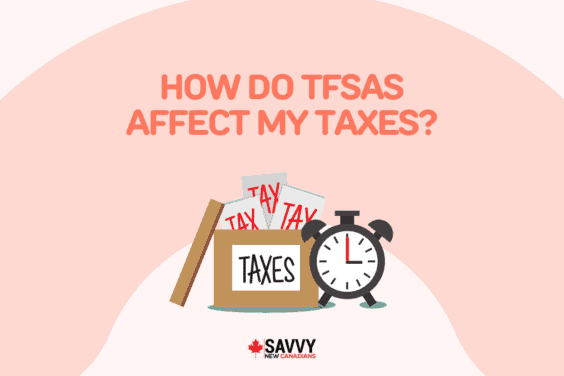Education can be expensive in Canada, but the federal tuition tax credit can be very helpful in lowering the burden. With this non-refundable tax credit, you can potentially claim thousands of dollars in tax credits, reducing your tax bill significantly.
Here’s everything you need to know about the tuition tax credit in Canada, including what it is, how much you can claim, exemptions, and more.
Key Takeaways
- The Federal Tuition Tax Credit allows you to reduce your tax bill when you file your return. How much you can claim depends on the tuition you paid during the year and the lowest tax bracket (currently 15%).
- This credit can also be transferred to family members.
- To qualify, you must be at least 16 or older, be enrolled in a post-secondary school, and have paid more than $100 in tuition.
What Is the Federal Tuition Tax Credit?
A tax credit is essentially a discount on your tax bill, reducing the amount you must pay.
The tuition tax credit is for people attending post-secondary education, and the idea behind it is to help make up for the tuition you pay, which can stretch to thousands of dollars.
The amount you can claim using the tax credit is based on how much you spend on tuition each year. It can also be transferred to family members so they can reduce the taxes they pay.
How Much Tuition Credit Can You Claim?
How much you can claim using the tuition tax credit depends on:
- The amount that you pay in tuition during the year.
- The lowest tax bracket percentage (for 2023, this is 15%).
Let’s say you paid $6,000 in tuition fees during the 2023 tax year. 15% of $6,000 is $900, so you would be entitled to a tax credit worth $900.
But because it is a non-refundable tax credit, you don’t receive anything if you do not owe any taxes.
This is quite common for students, who may be earning a low income or not have any income at all while they study. The tax credit is not very helpful if you do not pay any income tax.
In this case, you could transfer unused amounts to family members, where it could be more useful.
You can transfer unused amounts to one of your parents or grandparents. You could also transfer it to your spouse or common-law partner or one of their parents or grandparents.
So, if someone in your family earns more income and can benefit from the tax credit, it can make sense to transfer it to them.
However, you can only transfer a maximum of $5,000 minus any amount you have used to reduce your tax bill.
Who Is Eligible to Claim the Tuition Tax Credit?
There are several eligibility requirements to consider to claim the federal tax credit in Canada:
- You must be 16 or older at the end of the year.
- You must be enrolled in post-secondary education in Canada or internationally, either part-time or full-time.
- You must pay more than $100 in tuition.
If the course you are enrolled in is not at the post-secondary school level, you may still be eligible to claim the tax credit. But you must meet the other requirements and be gaining skills to help you in an occupation.
What Can You Not Claim as Tuition Fees?
There are some exclusions to be aware of when claiming the tuition tax credit in Canada.
For example, if your employer pays or reimburses the tuition fees, you cannot claim the tax credit. This is the same if your parent’s employer pays the tuition fees.
Likewise, you cannot claim the tax credit if the fees are covered by a job training program, such as a federal or provincial program.
But this is not the case if you receive a scholarship. In this case, you could still claim the tax credit.
Also, the tuition tax credit does not cover other costs you face as a student, including textbooks and transportation.
How to Claim the Tuition Tax Credit in Canada
When it comes to how to use the tuition tax credit in Canada, you must claim the credit when you file your taxes. You will need to claim a form from your school before you do this, and you can then include this form when you file your taxes.
There are several possible forms, depending on where you study.
If you are studying in Canada, you will need Form T2202, Tuition and Enrollment Certificate. Your school will normally provide this automatically.
There are three options if you are studying outside of Canada:
- Form TL11A, Tuition and Enrollment Certificate – University Outside Canada. If you study outside of Canada, you may need this form.
- Form TL11C, Tuition and Enrollment Certificate – Commuter to the United States. You may need this form if you live in Canada but commute to the USA.
- Form TL11D, Tuition Fees Certificate – Educational Institutions Outside Canada for a Deemed Resident of Canada. This form is for people deemed residents of Canada studying outside the country.
If you are studying outside of Canada, you may need to request the correct form because it may not be provided automatically.
If you do not want to claim the tax credit this year, you can carry forward any unused credits and claim them for the next year. However, you must state this when you file your tax return.
FAQs
You may be able to claim your child’s tuition tax credit on your taxes in Canada. If your child does not use their whole tax credit, they can transfer it to you. The maximum amount is $5,000 minus the amount they have used already.
You can claim a percentage of your tuition fees equal to the lowest tax bracket percentage for that year. In 2023, this is equal to 15% of your tuition fees.
This depends on their residency status. International students can claim the tuition tax credit in Canada as long as they are deemed residents for tax purposes.
You can claim your tuition tax credit in Canada when you file your tax return. You will need to present the correct form, which is usually Form T2202.
Related:



